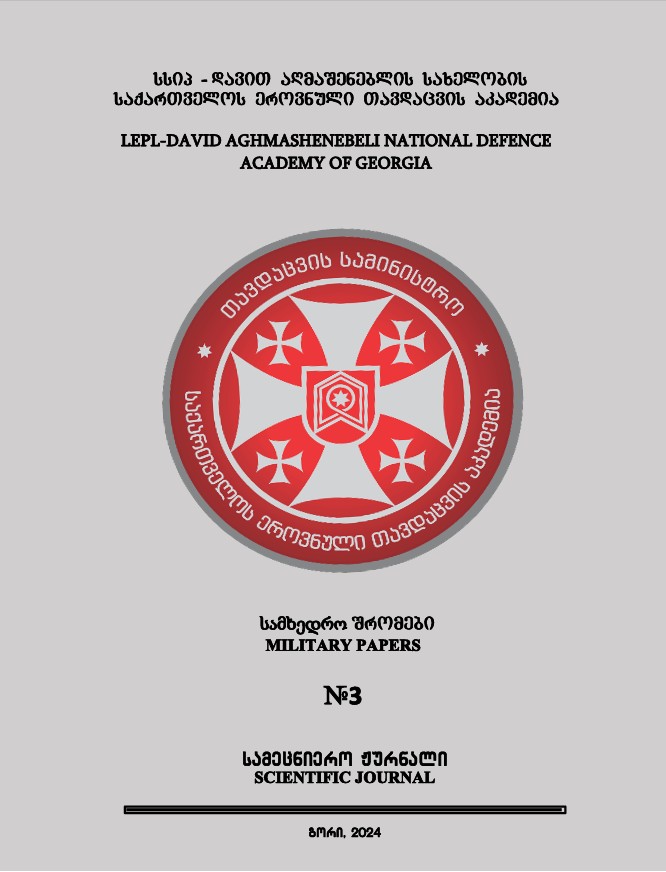ამოცანით მართვის ფილოსოფია – გენეზისი, ელემენტები და დანერგვის პრობლემა საქართველოს თავდაცვის ძალებში
Main Article Content
ანოტაცია
The article discusses the concept of operational or tactical management of military operations and battles in a modern warfare environment, which has entered the field of military art as Mission Command. The essence and meaning of the term is explained and the genesis of this more interesting philosophical phenomenon is presented, as well as the path of its historical evolution and the problems or challenges that were faced by the implementation of mission command in this or that military organization.
The concept of mission command expresses the directive or task-oriented tactics of troops and describes a particular approach to the art of troop management. It is an action oriented tactic, where the military commander's actions are based on his own perception of the operational situation and subsequent decision-making. So in this philosophy, the primacy of action is emphasized. The first part of this article discusses these issues and the historical development of this process. Although historical examples of this concept date back to antiquity, to the time of Alexander the Great, and examples of task management can be found in the annals of Georgian military history. These cases, of course, cannot be considered as formalized examples of this more interesting philosophy. This is a much more complex problem. And we're not talking about individual commanders who have been tasked with executing operations or executing individual battles. These characters couldn't create the weather then, and they can't create it now. The point is that a philosophy of mission command must be instilled in the chain of command at all levels, and that culture must be ingested organically by the absolute majority of the officer corps and staff sergeants.
The historical reality is that the formalization of mission command, for a variety of military-political reasons, didn't begin until the 19th century in Prussia. The Prussian military establishment rightly determined that the essence of all military institutions should be organizational flexibility and the absence of rigidly fixed constraints. Based on the requirements and the tasks set, commanders at all levels should have the ability to change military structures.
The Prussians realized early on that solving a problem would always require initiative in thinking and decision-making in a specific operational situation without going outside the general strategic plan. Success was measured by the outcome, not the means.
